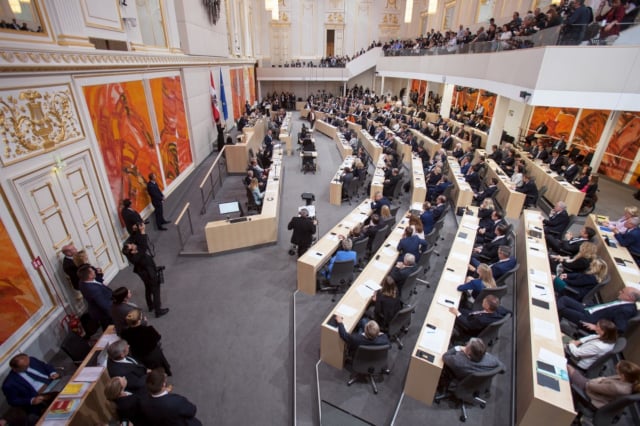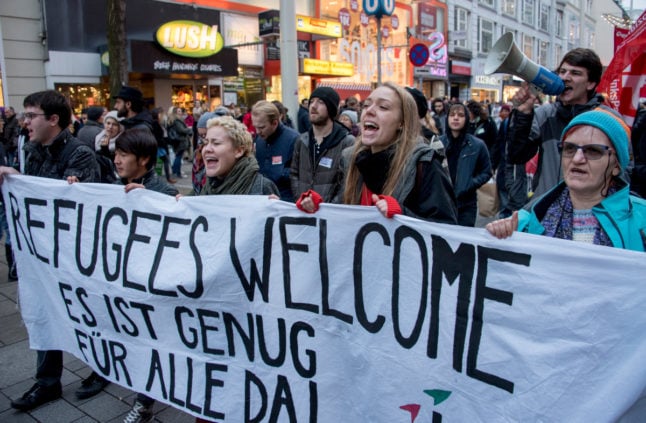Such a ban “must be in the next coalition agreement”, ÖVP parliamentary group leader August Wöginger said in a statement released to Austrian media.
The IBÖ, previously best known for its anti-immigration stunts, sparked controversy in Austria earlier this year after it was revealed that its leader Martin Sellner received money and exchanged emails with the suspected perpetrator of gun attacks on mosques in New Zealand in March which left 51 people dead.
The ÖVP's call for the movement to be banned comes as it tries to maintain its commanding poll lead ahead of parliamentary elections on September 29th while at the same time distancing itself from its former coalition partner, the far-right Freedom Party (FPÖ).
Austrian media reports have documented numerous links between Identitarian activists and FPÖ party members.
After the ÖVP first floated possible moves against the Identitarians earlier this week, the FPÖ's former Interior Minister Herbert Kickl rejected the possibility of banning the IBÖ, saying such a move would be “a deep attack on the rule of law”.
Wöginger said in his statement that Kickl had become the Identitarians' “principal patron saint”.
The coalition between the ÖVP and the FPÖ was sworn in in late 2017 but was dogged by frequent scandals over extremist statements by FPÖ party members.
The government collapsed in May after a video emerged of the then leader of the FPÖ, Heinz-Christian Strache, appearing to offer public contracts to a fake Russian donor in return for campaign help for the FPÖ.
The scandal prompted Strache to resign as vice-chancellor and led then Chancellor Sebastian Kurz to call fresh elections.
Earlier this week Strache's house was raided as apart of another investigation into possible corruption offences surrounding the appointment of an FPÖ official to a high-ranking position at a gambling corporation.
Despite the scandals, and the recriminations that have flown between the ÖVP and the FPÖ since their coalition collapsed, a fresh government composed of the two parties is seen as one of the most likely outcomes of September's poll.



 Please whitelist us to continue reading.
Please whitelist us to continue reading.